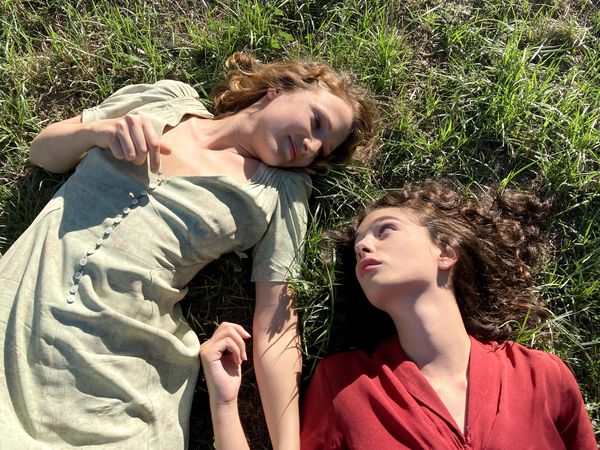Eye For Film >> Movies >> The Beautiful Summer (2023) Film Review
The Beautiful Summer
Reviewed by: Amber Wilkinson

Appointed with a warmth and plushness that is reminiscent of a Merchant Ivory production, Laura Luchetti’s adaptation of Cesare Pavesi’s The Beautiful Summer is handsomely turned out, which is fitting for a film which is partially set within the world of fine tailoring. Ginia (Yile Yara Vianello) and her brother Severino (Nichoas Maupas) are recent arrivals in Turin from the countryside; he is working and studying while she is showing talent as a seamstress in one of the city’s fashion houses.
Things begin to shift for inexperienced Ginia with the arrival of the glamorous and much more worldly Amelia (Deva Cassel) into her social circle. The captivated gaze of Diego Romero’s camera immediately makes it clear that Ginia is first attracted by the look and confidence of Amelia, but soon she is also finding herself swept up in the free-spirited young woman’s social circle.

There, she meets painters Rodrigues (Adrien Dewitte) and Guido (Alessandro Piavani), who along with Amelia begin to prompt her to consider exactly where her own desires lie. Thankfully, Amelia’s suspicious cough doesn’t quite go where you might expect it to, although this element of the story has the curious effect of making the film peak emotionally before its actual conclusion. “Girls who don’t smoke are complicated,” Guido tells her and it’s a shame there’s not more complexity in terms of Ginia’s inner world. Even though Vianello makes a big impression, giving Ginia a sense of pensive longing that plays well against the confident charms of Cassel, what drives her hovers tantalisingly out of reach. Motivation may be an issue but Ginia’s naivety is impressively pulled this way and that, so that it can bring her joy with her first glass of absinthe but also lead to disappointment in her first sexual encounter.
In general, the film is better in terms of its physical surfaces than its emotional depths. The costuming from Maria Cristina La Parola finds contrast between the russets and pale blues of the outfits favoured by Ginia and the stronger colours sported by Amelia, while the dappled sunshine does makes this world glow strongly. Although Cassel gives Amelia a strong screen presence, the script insists on keeping her an enigma, like the painters, more interested in her look than how she is feeling, although this does dovetail with the idea of the women somehow taking shape under the gaze of others, including us.
While the bulk of the scoring from Francesco Cerasi is tastefully lyrical, Luchetti makes the odd directorial choice of having a 2008 song by Swiss singer-songwriter Sophie Hunger play at two key moments. While the sentiment might be fitting for the romantic element of the film, the selection breaks the period mood. It’s a shame that the beauty of this summer remains frustratingly skin deep.
Reviewed on: 08 Aug 2023
















